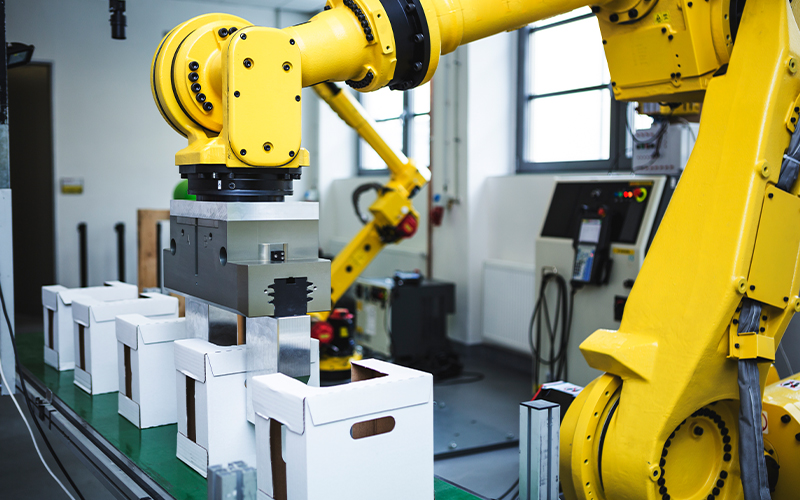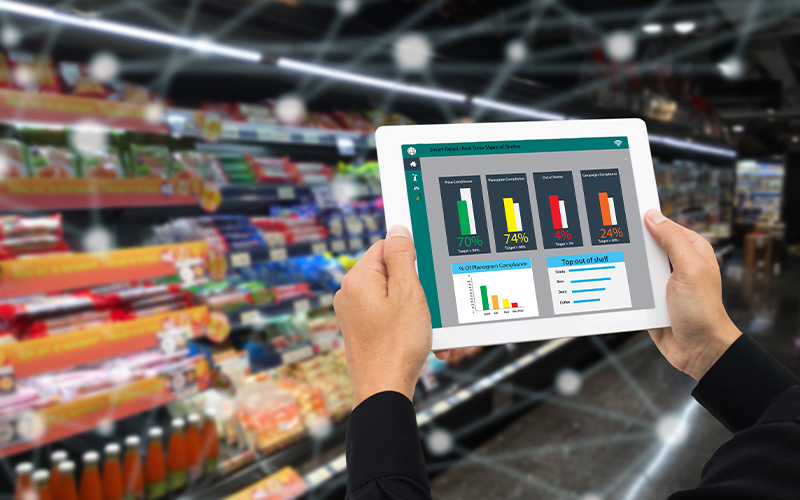BUSINESS TRANSFORMATION
8 Ways in which Digital Transformation is Shaping the Supply Chain
Seamless supply chain management plays a critical role in the success of any business. Supply chain management refers to the management of the network of processes that a product goes through from its inception to delivery. Supply chains have several components that need to work in tandem to provide value to the customer.
Broadly speaking, the essential components of a supply chain are:
- Planning the production and delivery process. The planning is done based on the demand for the product and the time of delivery.
- Procurement of raw materials from vendors.
- The manufacture of the product through a set of complex processes depending on the type of product.
- Quality checks on the manufactured product.
- Inventory management for efficient repeat cycles.
- Timely deliveries.
- Systems in place to manage returns.
One of the most vital aspects of the entire supply chain is logistics management. The movement of raw materials from manufacturing to delivery of finished products needs to be monitored and streamlined.
Legacy supply chain systems have the entire process controlled manually by the staff. The process is extremely slow and prone to human errors; besides it lacks the flexibility to adapt to changes in the external environment. Traditional supply chain management is limited in its ability to facilitate collaboration between various stakeholders as well.
How digital transformation impacts supply chain management?
Digital transformation of the supply chain is the need of the hour. This is because the needs of the customer have changed drastically in the digital era. They demand customised experiences from the business. If a business does not cater to these demands, the customer will shift to another company. The demands of the customer have become the chief focus area around which different departments of an organisation function. Businesses need to cope with the ever-changing demands of the customer in addition to the changes in the market.
This is where emerging technologies have a role to play. Technologies such as Big Data, Artificial Intelligence (AI), the Internet of Things (IoT), and Robotic Process Automation(RPA) are making inroads in different types of product and service-based industries. These technologies can transform how the supply chains function.
Big Data
Big Data provides vital data that enables inventory managers to manage demand and supply better. They can plan and strategise their supply chain processes based on the available data and analytics.
RPA
Robotic Process Automation facilitates automating different processes involved in supply chain management. RPA bots can automate processes such as tracking shipments and nurturing customers once the order is complete.
AI
Artificial Intelligence can be used for predictive analysis of the demand to facilitate better planning.
AI can streamline:
- Logistics and Transportation
- Supplier risk assessment
- Demand Forecasting and Inventory Management
IoT
IoT devices are embedded in different devices and systems to streamline the flow of material and data. IoT devices are effective in tracking and authenticating products using GPS and other technologies. They facilitate better quality management by monitoring the storage conditions of products.
Cloud
Cloud computing simplifies the processes involved in keeping track of a product throughout its life cycle. It facilitates the collaboration of various stakeholders, saving time and enhancing productivity.
Digital Transformation can impact each component of the supply chain. It empowers marketers to forecast demand accurately with the help of data and predictive analysis. Based on the forecast, production can be planned effectively reducing the margin for error and minimising cost. Automation provides a competitive edge by speeding up processes and reducing time to market. Digital transformation makes the system agile so that it can adapt easily to unforeseen circumstances.
Here are some ways in which digital transformation is shaping supply chain management:
In conclusion
Digital transformation is the way ahead for businesses to succeed in a digital marketplace. Industrial-grade digital technologies have a vital role to play in the efficient management of the supply chain. Businesses are now realising the benefits of digital transformation and are ready to implement it in their supply chain for reliable and effective order execution. Hence it comes as no surprise that the digital supply chain market is expected to grow tremendously in the near future.
*For organizations on the digital transformation journey, agility is key in responding to a rapidly changing technology and business landscape. Now more than ever, it is crucial to deliver and exceed on organizational expectations with a robust digital mindset backed by innovation. Enabling businesses to sense, learn, respond, and evolve like a living organism, will be imperative for business excellence going forward. A comprehensive, yet modular suite of services is doing exactly that. Equipping organizations with intuitive decision-making automatically at scale, actionable insights based on real-time solutions, anytime/anywhere experience, and in-depth data visibility across functions leading to hyper-productivity, Live Enterprise is building connected organizations that are innovating collaboratively for the future.







